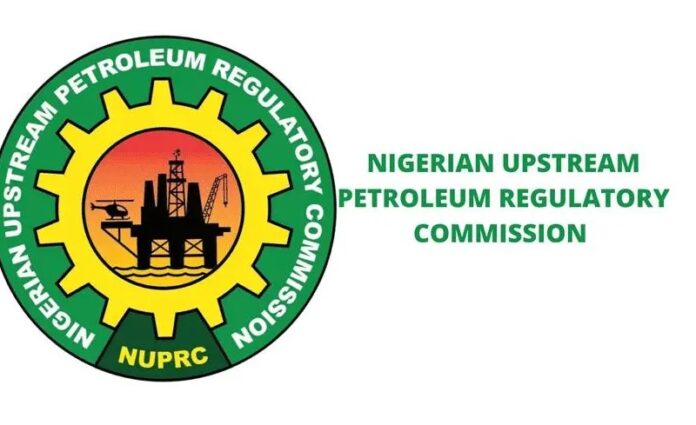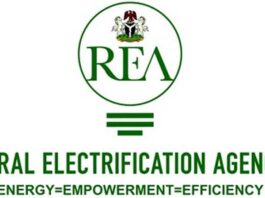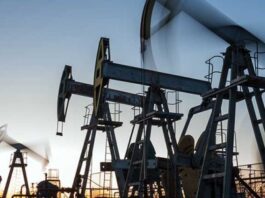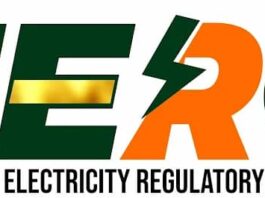Nigeria’s oil worth N341tn locked in undeveloped fields – Report
Over 3.5 billion barrels of oil and condensate reserves are locked in undeveloped fields across different basins in Nigeria, according to reports in a publication by the Nigerian Upstream Petroleum Regulatory Commission.
At the current average price of $65 per barrel, the reserves are valued at about $227.5bn, translating to a staggering N341.25tn when converted at the exchange rate of N1,500 to a dollar.
Our correspondent observes that this is over 600 per cent of the 2025 budget, which is N54.9tn. Using the 2025 budget costing, the amount is enough to build over two million primary health centres at the rate of N150m each. It can build over five million blocks of two classrooms at an average of N65m each. Also, 413,000 kilometres of roads can be constructed with the amount at N825m per kilometre.
The 2025 budget has a deficit of over N13tn. The fiscal plan makes provisions for N13.64tn in recurrent expenditure, N23.96tn for capital projects, N14.32tn for debt servicing, and N3.65tn for statutory transfers, while projecting a deficit of N13.08tn to be financed through domestic and external borrowing.
According to a report by the Debt Management Office, Nigeria’s total public debt rose to N149.39tn as of March 31, 2025, marking a year-on-year increase of N27.72tn or 22.8 per cent compared to the N121.67tn recorded in the corresponding period of 2024.
As a country with high dependence on oil revenues, unlicensed and undeveloped oil blocks impact incomes, causing the country to resort to borrowing. It was learnt that the government’s debt stock crossed N149tn in Q1 2025, and the country continues to depend on imports to meet refined petroleum needs, even as its own refineries suffer from chronic crude shortages.
The persistent rise in debt stock is attributed to new borrowings by the Federal Government and the depreciation of the naira, which inflated the local currency value of external loans. Recall that a sizeable volume of yet-to-be-extracted oil has been committed to loans.
The regulator’s report also stated that 18.8 trillion cubic feet of associated and non-associated gas reserves were still locked under the ground. According to the report, the development status of deepwater oil and gas fields revealed a significant untapped potential in the sector.
A pie chart analysis showed that 31.65 per cent of these fields remain undeveloped, marking the largest category. This figure underscores the vast reserves that are yet to be harnessed, potentially impacting the government’s financial capacity and forcing the country to borrow more.
In contrast, only a paltry 12.25 per cent of the deepwater oil and gas fields are currently classified as developed fields, indicating that operational sites constitute a moderate portion of the total allocated fields. This suggests that while some progress has been made in bringing these resources online, the majority of the industry’s focus may still be on planning and initial stages rather than full-scale production. Meanwhile, 5.10 per cent represents fields where development is in view, indicating that there are limited projects in the pipeline at this time.
The development status of the deep offshore oil and condensate reserves showed that 1.7 billion barrels are in developed fields, representing 25 per cent; 1.5 billion barrels (23 per cent) are in fields tagged ‘development in view’, while 52 per cent are in undeveloped fields.
It was reported that as of January 1, 2025, the deepwater terrain contributed approximately 19 per cent and 12 per cent of oil and gas reserves in Nigeria. 65 per cent of the discovered fields are undeveloped, while only 10 per cent of the discovered fields are developed. 25 per cent of deep offshore reserves have ‘development in view’.
“This implies that over 3,500 MMB of oil and condensate reserves and 18.8 TCF of non-associated gas and associated gas reserves are locked in undeveloped fields,” the report said. It was stated that development gas reserves were just 4.7 TCF, while 877 billion cubic feet of gas reserves are currently undergoing development processes.
These current figures are in fields that have been identified but left fallow. The NUPRC said Nigeria’s oil reserves stood at 37.28 billion barrels, while gas reserves hit 210.54 TCF. It was reported that there are 220 unlicensed oil blocks scattered in different onshore and offshore basins across the country.
During Thursday’s celebration of the 50th anniversary of the Nigerian Association of Petroleum Explorationists, the Group Chief Executive Officer of the Nigerian National Petroleum Company Limited, Bayo Ojulari, raised concerns over Nigeria’s untapped oil and gas resources.
Ojulari, who was represented at the event by the company’s Executive Vice-President, Upstream, Udobong Ntia, warned that Nigeria must urgently turn its oil reserves into production, saying crude in the ground holds no value until it is extracted. He said Nigeria has had enough oil in the ground for many years, saying the time has come to bring it out for the good of the citizenry.
“Our oil in the ground doesn’t matter to anybody. It has to convert to cash for the country to get the benefit that we need. We’ve had oil in the ground for so long, so long. It’s time to begin to get the deals that will get the oil out of the ground,” Ojulari said.
In his advice, the President of NAPE, Johnbosco Uche, said investors need the right data to make investment decisions. He recommended that the NUPRC should hold the bid rounds annually, saying that is the only way to ramp up production. Uche mentioned that Nigeria has one of the most prolific basins in the world.
“With the right data available to the investors to showcase the potential we have, investors will come, because this is still one of the most prolific basins in the world; the Niger Delta is rich. So, by having the right data room and showcasing the potential that we have, certainly, investors are going to come.
“So, we will actually recommend that in one way or another, we can still have that bid round, no matter how small it is, on an annual basis; even if it is a marginal field this year, then the other year, they go to an open block fully. That is the only way we can ramp up that production we’re talking about and boost the reserve growth to 40 billion barrels. It is only when we have more activities and the right figure that we can achieve this,” he said.
He added that the Petroleum Industry Act, with the efforts of the NUPRC, is promoting stability in the upstream, saying there were a couple of final investment decisions being taken in Nigeria, especially with President Bola Tinubu’s executive orders.
“We just need to have the right data room; let there be incentives to allow more investors to come in. On an annual basis, keep the sector busy. They can segment it between held acreage, those that are relinquished, and those that are in the frontier in the year after.
Meanwhile, the NUPRC said the 220 dormant open blocks would be handed to concessionaires after periodic bid rounds and conditions are met. The oil blocks have remained dormant despite Nigeria’s growing debt burden and crude shortages affecting local refineries.
The NUPRC data showed that the deep offshore terrain accounts for the highest number of unlicensed blocks at 59, highlighting the country’s underexploited energy wealth in its most technically advanced but capital-intensive region.
The Benue Trough follows with 41 open blocks, while the Chad Basin hosts 40. In the Sokoto Basin, there are 28 blocks yet to be awarded, and the Bida Basin has 16. It was disclosed that even in more mature areas, idle blocks persist.
The offshore Niger Delta, often considered the backbone of Nigeria’s oil production history, still holds seven open blocks. The Anambra Basin has 13 open blocks, while eight each remain unlicensed in the Benin Basin and the onshore Niger Delta.
However, the commission clarified that the 220 oil blocks were not abandoned but were simply awaiting concessions in line with Section 7(t) of the Petroleum Industry Act 2021, which empowers it to conduct periodic licensing rounds and grant Petroleum Prospecting Licences and Petroleum Mining Leases to prospective investors.
“The 220 oil blocks would be handed to concessionaires after periodic bid rounds and conditions had been met,” the NUPRC said.
But the NAPE president said the days of easy oil and gas are gone. He stated that there should be the right technology and seismic data to unlock the reserves, adding that the Niger Delta has oil reserves that have yet to be discovered.
“We need the right technology and the ability to unlock these new reserves. If we don’t have new seismic, we will still struggle to find them. We’ll struggle because the days of easy oil and gas are gone.
In April, the Minister of State for Petroleum Resources (Oil), Senator Heineken Lokpobiri, threatened to withdraw oil blocks from owners that have failed to develop them.
Lokpobiri also called on international oil companies operating in Nigeria to ramp up investment in the country’s oil and gas sector, emphasising that the current administration has provided every necessary incentive to ensure seamless and profitable operations.
“We cannot continue to have assets sitting idle for 20 to 30 years without development. If you are not utilising an asset and it remains underdeveloped for decades, it neither adds value to your books nor to us as a country.
“We encourage industry players to explore collaborative measures such as shared resources for contiguous assets, farm-outs, and the release of underutilised assets to operators ready to invest in production. Otherwise, like any responsible government, we will take back these assets and allocate them to those willing to go to work,” the oil minister said.
=== PUNCH ===








